 https://sosny.com/wp-content/uploads/2025/08/Meeting-with-client-over-video-call.jpg
1250
2000
Abstrakt Marketing
/wp-content/uploads/2024/04/SOS-Logo-Color-New.png
Abstrakt Marketing2025-07-25 20:42:432025-08-26 20:28:37How VoIP Collaboration Enhances Communication Between Clients and Teams
https://sosny.com/wp-content/uploads/2025/08/Meeting-with-client-over-video-call.jpg
1250
2000
Abstrakt Marketing
/wp-content/uploads/2024/04/SOS-Logo-Color-New.png
Abstrakt Marketing2025-07-25 20:42:432025-08-26 20:28:37How VoIP Collaboration Enhances Communication Between Clients and Teams18 VoIP FAQs: What You Need to Know About Internet Phone Services
Curious about switching to internet-based phone services but unsure where to start? VoIP has transformed how businesses and individuals communicate, offering flexibility, cost savings, and advanced features that traditional phone systems often lack.
In this guide, we’ll address VoIP FAQs, providing the key information you need to understand, set up, and maximize VoIP for your business operations.
1. What is VoIP, and How Can It Benefit My Business?
VoIP, or Voice over Internet Protocol, allows businesses to make phone calls over the internet rather than traditional phone lines. For businesses, VoIP is often more cost-effective, flexible, and feature-rich. With VoIP, you can scale as your team grows, integrate with digital tools, and enable remote communication, making it a practical solution for modern workplaces.
2. What Equipment Does My Business Need to Set Up VoIP?
Setting up VoIP for business use typically requires an internet connection, VoIP-compatible phones (desk phones or softphones on devices), and a VoIP service provider like Superior Office Solutions. Some setups also benefit from a private branch exchange (PBX) system if call management is essential. A reliable router and sufficient bandwidth also help ensure consistent call quality and connectivity.
3. How Reliable is VoIP for Business Communications Compared to Traditional Phone Lines?
VoIP can offer a reliability level comparable to traditional landlines, or even better with a strong internet connection and quality service provider. However, since VoIP depends on internet connectivity, outages can affect it. Many businesses use backup internet solutions or mobile options to maintain service continuity even if their primary connection fails.
4. What Security Measures Are Available to Keep VoIP Calls Secure for Business Use?
VoIP providers often offer advanced security protocols, such as end-to-end encryption, secure user authentication, and network firewalls to protect business communications. It’s also advisable to use a VPN for added security, conduct regular updates, and apply strong password policies. Implementing these measures helps prevent unauthorized access to your VoIP system.
5. Can My Business Use Existing Office Phones with VoIP, or Do We Need New Hardware?
Many businesses can use their existing phones by using an adapter to make them VoIP-compatible. Alternatively, you can purchase VoIP-specific phones or use software-based phones on computers and mobile devices. Superior Office Solutions offers business phone leasing options to give companies a range of options. This flexibility lets you integrate VoIP into your current setup without large upfront equipment costs, making it adaptable for any office environment.
6. How Does VoIP Call Quality Compare to Traditional Business Phone Services?
VoIP call quality depends on the strength and stability of your internet connection. With adequate bandwidth, VoIP quality can equal or even surpass that of traditional landlines. Advanced VoIP services also include noise cancellation and quality control settings to improve clarity, making it suitable for professional communication standards.
7. Is VoIP More Affordable Than a Business Landline Service?
For most businesses, VoIP is more cost-effective than landline services due to its lower infrastructure requirements and minimal maintenance. VoIP providers, such as Superior Office Solutions, often bundle useful business features like call forwarding, voicemail, and conferencing at no additional cost, eliminating the need for multiple subscriptions and reducing total monthly expenses.
8. Can VoIP Support Business Needs Like Video Conferencing, Voicemail, and Call Forwarding?
Yes, VoIP supports a range of business functionalities, including video conferencing, voicemail, call forwarding, and more. These features are often built into VoIP packages at no extra cost, making it convenient for businesses to access essential communication tools within a single platform and supporting seamless team collaboration.
9. Does VoIP Work During Internet or Power Outages, and What Backup Options Are Available?
Since VoIP requires internet connectivity, it’s vulnerable to internet or power outages. To mitigate this, businesses can use backup power sources like uninterruptible power supplies (UPS) and mobile hotspot connections to maintain VoIP functionality. Many providers, like Superior Office Solutions, also offer forwarding options to mobile phones, ensuring continuity even if the main system fails.
10. Are There Any Limitations When Using VoIP Internationally for Business?
VoIP is typically an excellent option for international business communication due to its lower call rates. However, depending on the provider, some regions may have limited or restricted access to VoIP services. It’s advisable to check compatibility for specific countries, particularly if international calling is integral to your operations.
11. What’s the Difference Between Hosted VoIP and On-Premises VoIP for a Business Setup?
Hosted VoIP is managed by an external provider and accessed via the cloud, minimizing maintenance needs and upfront costs. On-premises VoIP, by contrast, is managed internally with on-site equipment, offering more control. Businesses with IT support often prefer on-premises, while smaller businesses benefit from the affordability and simplicity of hosted VoIP.
Upgrade your business communication and find the answers to your VoIP FAQs with hosted phone services from Superior Office Solutions.
12. How Scalable is VoIP for Accommodating a Growing Team?
VoIP is highly scalable, allowing you to add new users, lines, and features as your team expands without significant infrastructure changes. Hosted VoIP services like Superior Ofice Solutions’ offer the most flexibility, letting businesses adjust their plans as needed. This adaptability makes VoIP an ideal choice for fast-growing businesses that need communication solutions to evolve with them.
13. What Minimum Internet Speed Does a Business Need for Effective VoIP Use?
Most VoIP services require a minimum speed of 100 kbps per call, but faster speeds are recommended for optimal quality. Businesses with high call volumes should consider dedicated internet connections to ensure clarity and uninterrupted service. Bandwidth monitoring tools can also help maintain VoIP performance by preventing network congestion.
14. Can Our Business Keep Existing Phone Numbers When Switching to VoIP?
Yes, most VoIP providers support number portability, allowing businesses to retain their existing numbers. This ensures a smooth transition without disrupting contact information for clients or customers. During the setup, simply request number porting from your provider, which helps maintain continuity and avoids the need for new contact information updates.
15. How Does VoIP Handle Business Features Like Multiple Lines and Department Extensions?
VoIP easily supports multiple lines and department extensions, enabling businesses to manage calls across different teams or departments. Superior Office Solutions’ VoIP systems can route calls based on the department or user, creating a streamlined communication structure. This flexibility allows businesses to set up a professional call management system without complex setups or costs.
16. What Level of Customer Support is Available for VoIP, and How Quickly Can Issues Be Resolved?
Many VoIP providers, including Superior Office Solutions, offer dedicated support services, including 24/7 technical assistance for call quality and connectivity problems. Many also provide online resources and live support. Choosing a provider with reliable, prompt customer service is essential to minimize downtime and ensure that technical issues don’t disrupt business operations.
17. How Easily Can VoIP Integrate with Other Business Software, Such as CRM or Collaboration Tools?
VoIP can seamlessly integrate with various business tools, including customer relationship management (CRM) systems and collaboration platforms. This integration streamlines workflows, enabling features like click-to-call from a CRM. Integrating VoIP with project management software also improves team communication and allows businesses to track call history and interaction details.
18. What Are Common Troubleshooting Steps if VoIP Call Quality Becomes an Issue?
If VoIP call quality suffers, first check your internet connection and ensure enough bandwidth. Close unnecessary applications that may strain network resources, and consider using Ethernet connections for stable connectivity. Providers often offer troubleshooting tools or customer support to help diagnose and resolve quality issues promptly.
If you’re feeling confident about the capabilities of VoIP and are ready to integrate them into your business, consider partnering with the experts at Superior Office Solutions.
Find the Answers to Your VoIP FAQs With Superior Office Solutions
Superior Office Solutions is here to transform your business communication with reliable VoIP services tailored to your needs. Our team is dedicated to helping you achieve seamless, high-quality communication solutions that support productivity and collaboration. Whether you’re looking to enhance call quality, integrate advanced features, or scale your system as you grow, we’ve got you covered.
Reach out to our team today to get started with business VoIP services. We’re here to answer all your VoIP FAQs and ensure you get the most out of your setup every step of the way.
Share This Post
More Like This
 https://sosny.com/wp-content/uploads/2025/08/Meeting-with-client-over-video-call.jpg
1250
2000
Abstrakt Marketing
/wp-content/uploads/2024/04/SOS-Logo-Color-New.png
Abstrakt Marketing2025-07-25 20:42:432025-08-26 20:28:37How VoIP Collaboration Enhances Communication Between Clients and Teams
https://sosny.com/wp-content/uploads/2025/08/Meeting-with-client-over-video-call.jpg
1250
2000
Abstrakt Marketing
/wp-content/uploads/2024/04/SOS-Logo-Color-New.png
Abstrakt Marketing2025-07-25 20:42:432025-08-26 20:28:37How VoIP Collaboration Enhances Communication Between Clients and Teams https://sosny.com/wp-content/uploads/2025/08/Person-using-printer-in-office.jpg
1250
2000
Abstrakt Marketing
/wp-content/uploads/2024/04/SOS-Logo-Color-New.png
Abstrakt Marketing2025-07-25 20:36:242025-08-26 20:28:37How Managed Print Services Can Reduce Printing Costs For Nonprofits
https://sosny.com/wp-content/uploads/2025/08/Person-using-printer-in-office.jpg
1250
2000
Abstrakt Marketing
/wp-content/uploads/2024/04/SOS-Logo-Color-New.png
Abstrakt Marketing2025-07-25 20:36:242025-08-26 20:28:37How Managed Print Services Can Reduce Printing Costs For Nonprofits https://sosny.com/wp-content/uploads/2025/08/Illustration-of-digital-document-management.jpg
1250
2000
Abstrakt Marketing
/wp-content/uploads/2024/04/SOS-Logo-Color-New.png
Abstrakt Marketing2025-07-25 20:28:502025-08-26 20:28:38Document Management Best Practices For Enhanced Digital Organization
https://sosny.com/wp-content/uploads/2025/08/Illustration-of-digital-document-management.jpg
1250
2000
Abstrakt Marketing
/wp-content/uploads/2024/04/SOS-Logo-Color-New.png
Abstrakt Marketing2025-07-25 20:28:502025-08-26 20:28:38Document Management Best Practices For Enhanced Digital Organization https://sosny.com/wp-content/uploads/2025/06/Person-using-multifunction-printer.jpg
1250
2000
Abstrakt Marketing
/wp-content/uploads/2024/04/SOS-Logo-Color-New.png
Abstrakt Marketing2025-06-24 16:01:462025-08-26 20:28:38Top Features of Kyocera Multifunction Printers
https://sosny.com/wp-content/uploads/2025/06/Person-using-multifunction-printer.jpg
1250
2000
Abstrakt Marketing
/wp-content/uploads/2024/04/SOS-Logo-Color-New.png
Abstrakt Marketing2025-06-24 16:01:462025-08-26 20:28:38Top Features of Kyocera Multifunction Printers https://sosny.com/wp-content/uploads/2025/06/Business-person-with-phone-texting.jpg
1250
2000
Abstrakt Marketing
/wp-content/uploads/2024/04/SOS-Logo-Color-New.png
Abstrakt Marketing2025-06-24 14:24:562025-08-26 20:28:38How Business VoIP Texting Improves Customer Engagement and Sales
https://sosny.com/wp-content/uploads/2025/06/Business-person-with-phone-texting.jpg
1250
2000
Abstrakt Marketing
/wp-content/uploads/2024/04/SOS-Logo-Color-New.png
Abstrakt Marketing2025-06-24 14:24:562025-08-26 20:28:38How Business VoIP Texting Improves Customer Engagement and Sales https://sosny.com/wp-content/uploads/2025/06/Worker-using-printer-in-office.jpg
1250
2000
Abstrakt Marketing
/wp-content/uploads/2024/04/SOS-Logo-Color-New.png
Abstrakt Marketing2025-06-23 14:11:592025-08-26 20:28:39The Role of Light Production Printing in Modern Business Operations
https://sosny.com/wp-content/uploads/2025/06/Worker-using-printer-in-office.jpg
1250
2000
Abstrakt Marketing
/wp-content/uploads/2024/04/SOS-Logo-Color-New.png
Abstrakt Marketing2025-06-23 14:11:592025-08-26 20:28:39The Role of Light Production Printing in Modern Business Operations https://sosny.com/wp-content/uploads/2025/06/Wide-format-inkjet-printer.jpg
1250
2000
Abstrakt Marketing
/wp-content/uploads/2024/04/SOS-Logo-Color-New.png
Abstrakt Marketing2025-06-05 18:40:552025-08-26 20:28:39The Top Features of Wide-Format Printers
https://sosny.com/wp-content/uploads/2025/06/Wide-format-inkjet-printer.jpg
1250
2000
Abstrakt Marketing
/wp-content/uploads/2024/04/SOS-Logo-Color-New.png
Abstrakt Marketing2025-06-05 18:40:552025-08-26 20:28:39The Top Features of Wide-Format Printers https://sosny.com/wp-content/uploads/2025/05/Man-using-smartphone-near-bright-yellow-parcel-lockers-in-urban-setting.jpg
1250
2000
Abstrakt Marketing
/wp-content/uploads/2024/04/SOS-Logo-Color-New.png
Abstrakt Marketing2025-05-30 20:09:302025-08-26 20:28:40Industries That Benefit Most From FP Smart Locker Systems
https://sosny.com/wp-content/uploads/2025/05/Man-using-smartphone-near-bright-yellow-parcel-lockers-in-urban-setting.jpg
1250
2000
Abstrakt Marketing
/wp-content/uploads/2024/04/SOS-Logo-Color-New.png
Abstrakt Marketing2025-05-30 20:09:302025-08-26 20:28:40Industries That Benefit Most From FP Smart Locker Systems https://sosny.com/wp-content/uploads/2025/05/Night-phone-call-and-mature-man-with-tablet.jpg
1250
2000
Abstrakt Marketing
/wp-content/uploads/2024/04/SOS-Logo-Color-New.png
Abstrakt Marketing2025-05-30 19:55:542025-08-26 20:28:40How Smart Call Routing Increases Business Efficiency
https://sosny.com/wp-content/uploads/2025/05/Night-phone-call-and-mature-man-with-tablet.jpg
1250
2000
Abstrakt Marketing
/wp-content/uploads/2024/04/SOS-Logo-Color-New.png
Abstrakt Marketing2025-05-30 19:55:542025-08-26 20:28:40How Smart Call Routing Increases Business Efficiency


